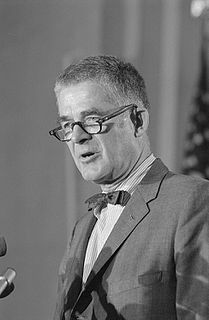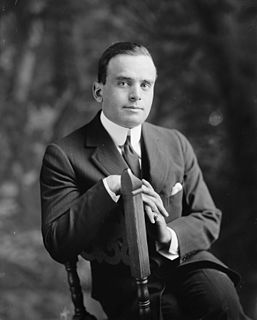A Quote by Thomas Jefferson
I am convinced that those societies (such as the Native American peoples) which live without government enjoy in their general mass an infinitely greater degree of happiness than those who live under the European governments. Among the former, public opinion is in the place of law, & restrains morals as powerfully as laws ever did anywhere. Among the latter, under pretence of governing they have divided their nations into two classes, wolves & sheep. I do not exaggerate.
Quote Topics
Am
American
American People
Among
Anywhere
Classes
Convinced
Degree
Did
Divided
Enjoy
European
Ever
Exaggerate
Former
General
Governing
Government
Governments
Greater
Happiness
Infinitely
Latter
Law
Laws
Live
Mass
Morals
Nations
Native
Native America
Native American
Opinion
Place
Pretence
Public
Public Opinion
Sheep
Societies
Than
Those
Two
Which
Without
Wolves
Related Quotes
Societies exist under three forms sufficiently distinguishable. 1. Without government, as among our Indians. 2. Under governments wherein the will of every one has a just influence, as is the case in England in a slight degree, and in our states, in a great one. 3. Under governments of force: as is the case in all other monarchies and in most of the other republics. To have an idea of the curse of existence under these last, they must be seen. It is a government of wolves over sheep.
I think it is important that religious leaders of all kinds consciously attempt to distinguish between issues of natural law on which there is consensus among Catholic, Protestant, and Jew and those issues on which there must be a greater degree of tolerance of other peoples' opinions and of the diversity that is characteristic of American society.
There is one view of the subject which ought to have its influence on those who espouse doctrines which strike at the authoritative origin and efficacious operation of the Government of the United States. The Government of the U.S. like all Governments free in their principles, rests on compact; a compact, not between the Government & the parties who formed & live under it; but among the parties themselves, and the strongest of Governments are those in which the compacts were most fairly formed and most faithfully executed.
I am convinced that 1941 will be the crucial year of a great New Order in Europe. The world shall open up for everyone. Privileges for individuals, the tyranny of certain nations and their financial rulers shall fall. And last of all this year will help to provide the foundations of a real understanding among peoples, and with it the certainty of conciliation among nations. . . . Those nations who are still opposed to us will some day recognize the greater enemy within. Then they will join us in a combined front, a front against Jewish exploitation and racial degeneration.
The relative freedom which we enjoy depends of public opinion. The law is no protection. Governments make laws, but whether they are carried out, and how the police behave, depends on the general temper in the country. If large numbers of people are interested in freedom of speech, there will be freedom of speech, even if the law forbids it; if public opinion is sluggish, inconvenient minorities will be persecuted, even if laws exist to protect them.
A free society depends upon a high degree of mutual trust. The public will not give that trust to officials who are not seen to be impartially dedicated to the general public interest, nor will they give trust to those high in government who violate the rule of law they ask citizens to obey at the expense of self-interest, or to those who present government as the place where one feathers his own nest, [or] exchanges favors with friends and former associates.
We need to promote greater tolerance and understanding among the peoples of the world. Nothing can be more dangerous to our efforts to build peace and development than a world divided along religious, ethnic or cultural lines. In each nation, and among all nations, we must work to promote unity based on our shared humanity.
We see that there are two different kinds of...societies: (a) parasitic societies and (b) producing societies. The former are those which live from hunting, fishing, or merely gleaning. By their economic activities they do not increase, but rather decrease, the amount of wealth in the world. The second kind of societies, producing societies, live by agricultural and pastoral activities. By these activities they seek to increase the amount of wealth in the world.
In proportion to the love existing among men, so will be the community of property and power. Among true and real friends, all is common; and, were ignorance and envy and superstition banished from the world, all mankind would be friends. The only perfect and genuine republic is that which comprehends every living being. Those distinctions which have been artificially set up, of nations, societies, families, and religions, are only general names, expressing the abhorrence and contempt with which men blindly consider their fellowmen.
Want compassion is not to be numbered among the general faults of mankind. The black ingredient which fouls our disposition is envy. Hence our eyes, it is to be feared, are seldom turned up to those who are manifestly greater, better, wiser, or happier than ourselves, without some degree of malignity, we commonly look downward on the mean and miserable with sufficient benevolence and pity.































